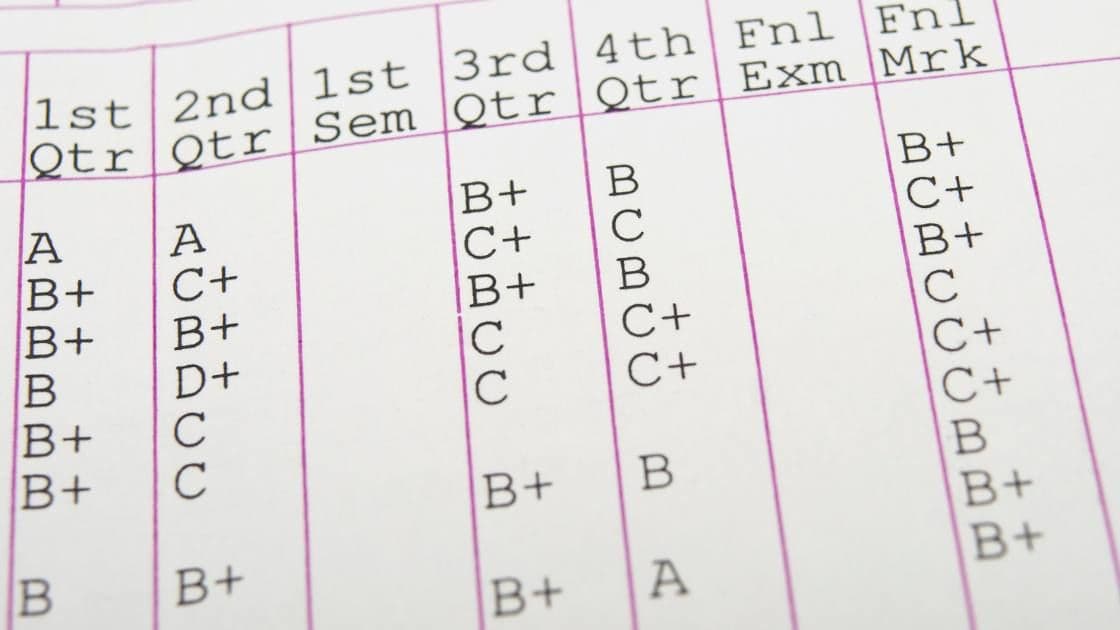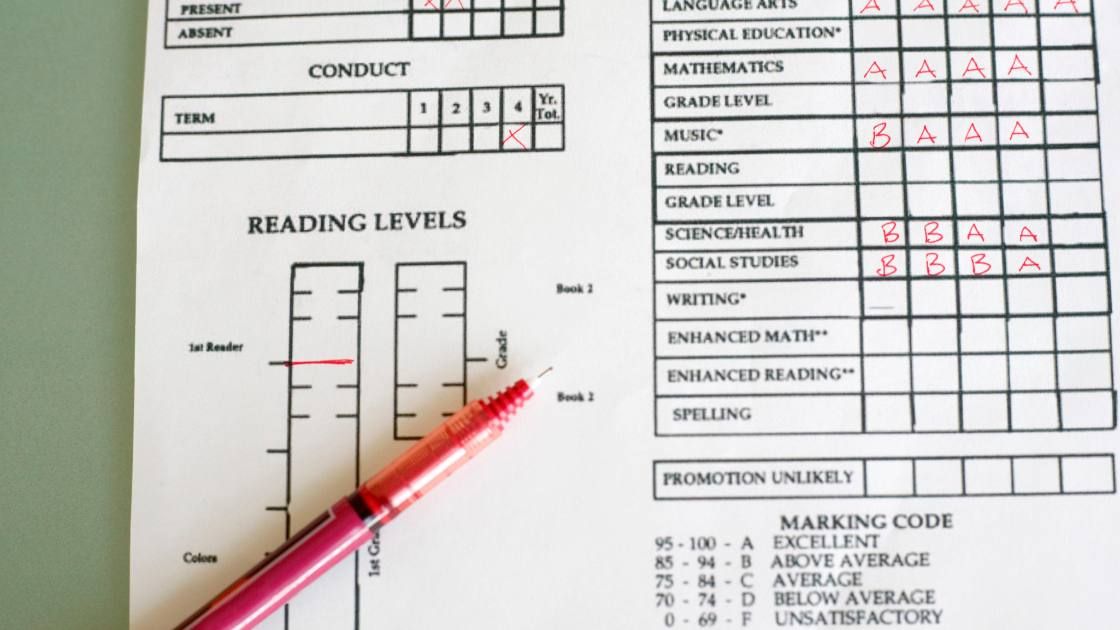
Unweighted vs Weighted GPA: Everything You Need to Know
This blog seeks to answer all your GPA-related questions, especially as they pertain to college admissions.

Have you heard the term “GPA” but are unsure what it means or how to calculate it? GPA stands for grade point average (i.e., the average of all your course grades up to this point). While this makes it seem like all you need to do to calculate GPA is add all your grades together and divide by the number of courses you’ve taken, the reality is a little more complicated. And once you know your GPA, is that really all that matters - the number? When you’re applying to college, do harder classes carry more weight than easier ones? Do universities care about gym and art grades? What if you did poorly in 9th grade: does it count as much as my 11th grade classes? And what’s the difference between a weighted and unweighted GPA? Do colleges care which one you have? This blog seeks to answer all your GPA-related questions, especially as they pertain to college admissions.

What is an unweighted GPA?
An unweighted GPA is a GPA that is calculated without taking into account the difficulty of the courses taken. All letter grades are given a value between 0.0 and 4.0 and GPA is calculated based on an average of point totals earned. In this system, Intro to Art and AP Physics carry the same weight and are capable of the same total score.
How to calculate unweighted GPA?
Unweighted GPA is calculated by adding together the point totals for all your letter grades and dividing by the total number of courses taken. For example, an ‘A’ in most schools is 4.0, a ‘B’ 3.0, and a ‘C’, 2.0, with + or - bumping up or down the number by degrees. If in one semester you had four As, two Bs, and one C, you would calculate your GPA by adding together 4+4+4+4+3+3+2 (24) and then dividing that number by 7, for a semester GPA of 3.43.
Here’s a typical conversion chart for calculating unweighted GPA.
| Letter Grade | Percentage | GPA |
| A+ | 97-100 | 4.0 |
| A | 93-96 | 4.0 |
| A- | 90-92 | 3.7 |
| B+ | 87-89 | 3.3 |
| B | 83-86 | 3.0 |
| B- | 80-82 | 2.7 |
| C+ | 77-79 | 2.3 |
| C | 73-76 | 2.0 |
| C- | 70-72 | 1.7 |
| D+ | 67-69 | 1.3 |
| D | 65-66 | 1.0 |
| F | Below 65 | 0.0 |
What is a good unweighted GPA for an Ivy League?
The short answer: the higher the better. The long answer: it depends on many factors. Ivy League admissions departments are not just looking at the GPA number, they’re looking at the academic rigor of the school, and the total possible GPA. When reviewing applications, admissions counselors will look at academic performance in all your classes, with a higher importance placed on achievement in the courses that relate to your intended major as well as core classes (English, Math, Social Science, “Hard” Science). The competitiveness of the program to which you are applying is also a factor. A 3.8 might be a perfectly acceptable GPA for one major, but not be competitive in another.
What is a weighted GPA?
A weighted GPA is one in which the academic rigor of the coursework impacts the total possible score. Typically, a weighted GPA is measured from 0.0 to 5.0. Unlike in a school with unweighted GPA, the total possible score for an academically challenging course in a school with weighted GPA will be higher than in a less challenging course. For instance, Honors Algebra 1 may have a total possible score of 4.5, while “regular” Algebra 1 would have a total possible score of 4.0, and AP Calculus a total score of 5.0.
How do you get a weighted GPA?
Whether or not you have a weighted GPA depends entirely on your school. Some high schools use a weighted system, and others an unweighted one.

Photo by Karolina Kaboompics
How to calculate weighted GPA?
Weighted GPA is calculated by adding together the weighted point totals of your grades earned and dividing by the total number of courses taken. Let’s use the same grades from our example above: four As, two Bs and one C. But this time, let’s say that two of the A’s were from honors courses that have a maximum score of 4.5, and the C was for an AP class that has a maximum score of 5.0. Your weighted point totals would look like this:
Regular class A: 4.0
Regular class A: 4.0
Honors class A: 4.5
Honors class A: 4.5
Regular class B: 3.0
Regular class B: 3.0
AP class C: 3.0
This would bring your total to 26. Dividing that number by total classes taken (7), would give you a semester GPA of 3.71.
This example also illustrates the impact weighted classes can have on your GPA. If you were able to get that AP class up to a B, your semester GPA would go up to a 3.86. But if that C had been a “regular” class, it would bring your GPA down to a 3.57.
Weighted GPA vs Unweighted GPA: What’s the Difference?
A weighted GPA system takes into account the academic challenge of a course, while an unweighted GPA system treats all classes the same. For example, in a high school that uses an unweighted system, both a student who took only “regular” classes and a student who took all advanced classes have the same maximum potential GPA: 4.0. However, in a school with a weighted GPA system, the student who took only regular classes would still have a maximum GPA of 4.0, while the student who took advanced classes would be able to earn above a 4.0 (generally up to a 5.0).
Do colleges look at the difficulty of your classes?
Yes. Universities, particularly the Ivy Leagues, want to see that you’ve challenged yourself academically. They’re also likely to look at what classes were available to you versus what you took. This is one way they’re able to fairly evaluate students from different schools. If your public high school only offers four AP classes, but you took - and did well - in all four of them, this reflects well on you. On the flip side, if your school offers 20+ AP classes and you only took four of them, this is unlikely to show the devotion to academic excellence sought by top universities.
Do 9th grade grades matter for college?
Yes. 9th and 10th grade classes impact your cumulative GPA. They also impact what classes are available to you in grades 11 and 12, which is why choosing the right courses from the start of high school is important. That being said, colleges know that bad semesters happen. If the first semester of freshman year was a hard adjustment, but all other semesters show strong academic performance, they’re likely to take that into consideration. The Common Application also provides an “additional information” section. If there were extenuating circumstances around a bad semester - health issues, change in family circumstances, etc - you can briefly address them in this section.
What GPA do colleges look at?
Colleges look at both types of GPA, weighted and unweighted, and will look at your cumulative GPA. Admissions departments understand that not all schools do things the same, and often convert both types of GPA into their own scoring system. These systems will take into account the types of courses offered, the academic rigor of the school, the performance of the student in the courses taken, and even the maximum possible GPA at the school, among many other metrics.
Do colleges care about PE grades? Art grades?
Most colleges do not care about gym or art grades very much - and certainly not as much as they care about core course grades. That being said, classes like art and gym do count towards your overall GPA, so you’ll want to do your best in these courses to maintain a high GPA. And if you’re applying to an art program, you’ll definitely want to do well in your art courses!
GPA is not the only aspect of your college application that matters - but it’s still an important one. If you’re concerned with your academic performance, Ivy Tutors can help. We offer both subject based and test specific tutoring services, as well as diagnostic testing and college admissions coaching. Match with a tutor today.




